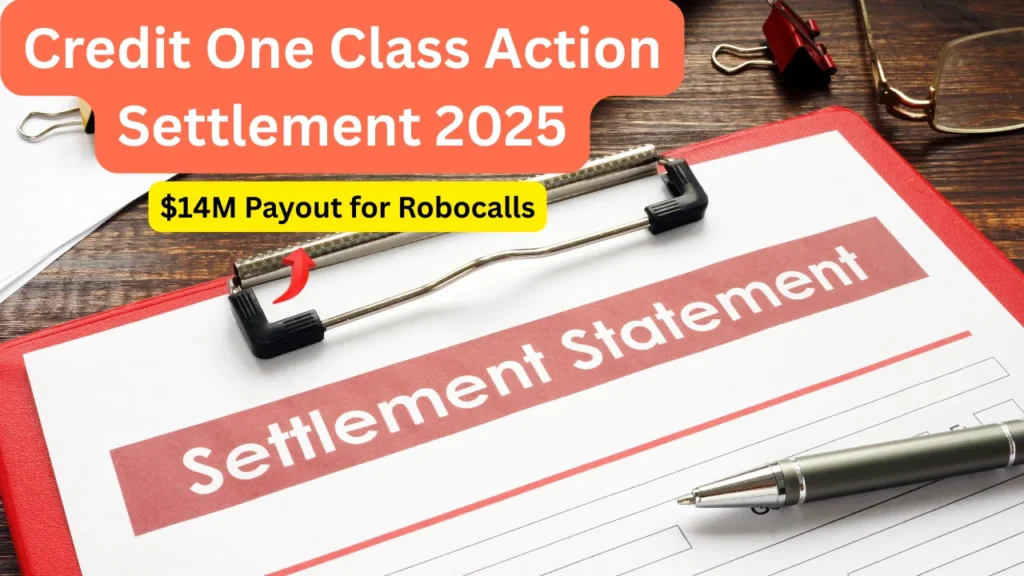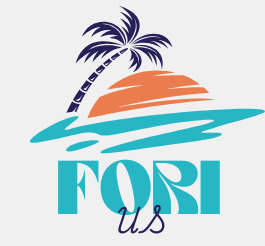Credit One Bank, one of the major credit card issuers in the United States, is facing national attention after agreeing to pay $14 million in a class action settlement. The lawsuit accused the bank of making automated calls, also known as robocalls, to people who never gave their consent.
The agreement does not mean the bank admitted fault, but it shows a willingness to end a long legal fight. For thousands of Americans who may have received these calls, the Credit One Class Action could result in financial payouts ranging from a few hundred to over a thousand dollars.
WASPI Women Payouts 2025: Eligibility, Compensation Amounts, and Payment Dates

Credit One Class Action: $14M Payout for Robocalls
| Credit One Class Action Settlement Amount | $14 million |
| Allegation | Robocalls made without permission |
| Law Involved | Telephone Consumer Protection Act |
| Eligible Period | 2014 to 2019 |
| Potential Payout | $100–$1,000 per claimant, depending on claims filed |
What Sparked the Lawsuit
The class action lawsuit alleged that Credit One Bank and its partners made automated or prerecorded calls to individuals who never agreed to receive them. Such calls are restricted by the Telephone Consumer Protection Act (TCPA), a federal law designed to protect consumers from unwanted robocalls.
According to the claims, the bank’s calls were not limited to its own customers. Even people with no business relationship with the bank received repeated calls, making the issue widespread.
Bank’s Response to the Allegations
Credit One Bank has denied wrongdoing. The bank insists that its practices were within the law, but fighting the case in court could have led to years of litigation and higher legal costs. By agreeing to settle, the bank avoids further expenses and the uncertainty of a trial.
For affected consumers, however, the settlement creates a chance to receive direct compensation for the inconvenience caused by these calls.
Who Qualifies for Credit One Class Action Payout
The settlement covers people who:
- Received robocalls or prerecorded messages made by Credit One Bank or its affiliates.
- Were contacted between 2014 and 2019.
- Did not give permission for these calls.
Importantly, individuals do not have to be Credit One Bank customers to qualify. Anyone contacted without consent during the eligible years may file a claim once the process officially opens.
Capital One Settlement 2025: Payouts Incoming – Who Qualifies and How Much You Could Get
How Much Money Could You Receive?
While the final payout per person is not yet confirmed, legal experts estimate it could range from $100 to $1,000. The actual amount will depend on:
- How many people file claims.
- Whether claimants provide proof such as call logs, voicemails, or phone records.
- Administrative and legal fees deducted from the $14 million fund.
Even those without direct proof may still qualify for compensation, although their payout could be on the lower end of the scale.
Do You Need Documents to File a Claim?
Claimants are encouraged to submit any supporting documents such as:
- Phone records showing repeated calls.
- Voicemails with prerecorded messages.
- Screenshots or logs from mobile devices.
Providing proof can increase the payout amount. However, proof is not mandatory. People can still apply without documentation, though their claims may result in smaller payments.
Settlement Approval Still Pending
While media outlets have widely reported the settlement, it has not yet received full court approval. This means:
- There is currently no official website or form to file claims.
- Notices will be sent to eligible individuals by mail or email once the settlement is finalized.
- Claimants should keep any evidence from the 2014–2019 period safe until instructions are released.
Until approval is granted, people are advised to remain cautious and only trust official announcements.
Steps Consumers Can Take While Waiting
While waiting for official updates, potential claimants should:
- Gather records – Save any documents, phone logs, or voicemails tied to calls from Credit One Bank.
- Watch for notices – Look out for emails or letters once the claims process begins.
- Stay updated – Follow trusted legal news outlets or consumer rights groups for settlement details.
For many, this settlement may provide long-awaited accountability for years of unwanted calls.
The Bigger Picture of the Case
The Credit One Class Action reflects a larger issue in consumer rights. Robocalls have been one of the biggest complaints to federal regulators, and many companies have faced lawsuits over unauthorized automated calls.
This settlement sends a clear message: businesses that ignore federal rules risk costly penalties and reputational damage. For consumers, it highlights the importance of laws like the TCPA in protecting privacy and peace of mind.
FAQs About Credit One Class Action Settlement 2025
It is about Credit One Bank paying $14 million to resolve claims it made robocalls to people without permission, violating the TCPA.
Anyone who got automated or prerecorded calls from Credit One Bank or its affiliates between 2014 and 2019 without consent.
Payments are expected to fall between $100 and $1,000 depending on how many people file and whether proof is provided.
No. Even non-customers are eligible if they received unwanted calls from the bank during the covered period.
The process will start after the court gives final approval. Eligible individuals will be notified by mail or email.
The Credit One Class Action settlement shows how consumer complaints about robocalls can lead to major consequences for corporations. With $14 million set aside, thousands of people may soon be eligible for compensation.
Although the bank continues to deny wrongdoing, the settlement provides a reminder that protecting privacy remains a legal priority. For everyday Americans, it offers a rare chance to receive compensation for years of unwanted and intrusive calls.
